A Vision of hope
Community dentist Miriam Fraser and her colleague Sandra Christie have been providing much-needed dental care to vulnerable people in Romania for the last three years
For community dental officer, Miriam Fraser and her colleague Sandra Christie, a community dental nurse, charity doesn’t begin at home. It starts 2,000 miles away, in Romania. Through the Scottish-based organisation Vision Romania, they have been providing a much-needed dental service to children and young people. Here, Miriam tells us about the experience.
Can you tell us about your background?
I have worked as a community dental officer for the Public Dental Service (PDS) NHS Tayside for the last eight years. Our remit involves working with vulnerable groups and those who find it difficult to access dental care in general practice. I specifically work with patients with special care requirements, with prisoners in HMP Perth, with nursing home residents and housebound patients in west Perthshire and the homeless population of Perth. I also do a fair amount with the out-of-hours emergency service in Tayside.
Sandra works as a community dental nurse in the same service, although with a different clinician, so covers a slightly different patient base. She works more with children and previously worked alongside an endodontic specialist. She also works with the out-of-hours service. She has been working for the PDS for seven years.
They were overwhelmed and were in tears because their son would finally be free from dental pain
Miriam Fraser, Community Dental Officer
How did you get involved in Vision Romania’s work?
One of the senior dentists – Gillian Elliot – in the PDS was involved in Vision Romania from the start. She knew charity co-founders Jim and Margaret Leiper and had gone twice a year to the camp for several years. When she decided to give this up I spoke to her about taking over responsibility for dental care at the camps and she put me in touch with Margaret Leiper. I asked a few dental nurses in the PDS if they wanted to be involved and Sandra was really keen.
Among other commitments, such as sponsoring poor families and collecting donations in Scotland, Vision Romania runs two ‘holiday’ camps; one in July for underprivileged rural children aged 7-12, and one in May for young adults with special needs. The camps are held at Casa Harului House of Grace, run by Maria Medrea and, before his death, her husband, Beni. The location is in the beautiful mountains of Transylvania and the camps provide the young people with the opportunity to interact, learn and play in a safe, supported environment.
Both Sandra and I were initially just looking for something different to do and had heard from Gillian that the camp work was really rewarding. We felt our experience in the PDS would allow us to contribute to the camp for young adults with special needs, so that was the one we initially signed up for.
How often have you visited the country?
We have been three years in a row – twice to the May camp and once to the July camp.
What help do you provide?
The range of dental treatment has been growing and includes all disciplines except endodontics, indirect restorations and dentures. Our working hours normally extend from 9.00am until 9.00pm and we handle all our own equipment maintenance and sterilisation with the help of Jim Leiper.
We ask dental companies and practices for donations of materials or equipment and our surgery at Casa Harului is fairly well furnished with chair, cart, amalgamator, light cure, ultrasonic bath and autoclave, as well as most essential materials. This process is ongoing, to ensure each camp remains well stocked.
As well as seeing the young people, their parents and any Romanian camp helpers, we also see autistic youngsters from the surrounding villages, most of whom have been refused treatment by local dentists.
We spend a day at Piclisa Psychiatric Hospital which houses around 200 residents with mild to severe physical or mental difficulties. With no funding and a single nurse for 15-20 residents, the hospital is dilapidated and patients receive little, if any, support. This is an incredibly rewarding yet difficult day. The amount of work required is beyond our capacity and inevitably some patients miss out on essential pain relief. We always leave feeling inspired, however, to continue to support this much-needed project.
We also provide oral health promotion talks to the children and their parents and give out donated hygiene supplies.
What sort of dental service is available to ordinary Romanian people?
Since the fall of communism, the country has slowly been building up the infrastructure to develop social services. Access to dental care in well-populated areas is available to those who can afford it. Currently, however, there is little support for poor rural families to access education, healthcare and child protection. This problem is even more marked for young people requiring special care. The lack of support can mean disabled youngsters are not able to attend school, interact with other children or develop their interpersonal skills, which can in turn mean they and their families are ostracised from their communities.
What response do you get?
The families helped by Vision Romania are very grateful and when we provide care we find that the response has been great. Although it is fairly common for patients to be anxious about care, most leave with smiles on their faces.
One family last year brought a teenage boy with severe non-verbal autism from one of the surrounding villages and told us that they had been unable to find a dentist willing to see him. Both parents were amazed when Sandra and I assessed the boy and were able to extract the two carious teeth in his mouth, over two successive visits.
Our translator told us they were overwhelmed that we had not batted an eyelid at providing care for their
child and were in tears when they left because their son would finally be free from dental pain.
- Miriam and Sandra carry out dental treatment at Casa Harului
- Miriam and Sandra make friends with the young guests of the holiday camp
- Excited children enjoy a talk on how to look after their teeth
- Casa Harului gives young people a safe place to play and relax
- Young patients wait their turn to see Miriam and Sandra
What has surprised you most about Romania and its people?
Both of us were unsure what to expect when we first went to Romania. We knew it was a beautiful country, especially the Transylvanian mountains where Casa Harului is situated.
The level of poverty in rural areas was a surprise. On our first trip we visited several families who are
supported by the charity and were struck by how little some people had.
We visited families who lived in shacks next to a railway line and one family of eight who lived in an old munitions store with only two rooms.
The generosity of these families was surprising and humbling. All the families we visited offered us some form of food they had made for our visit and it struck us that their generosity and pride, however little they had, seemed to be at the core of Romanian culture.
Will you continue volunteering?
We are already planning our trip in 2017. It has taken this long for us to be confident in our fundraising ideas and every time we visit we come away with more ideas on how to make it better and offer more treatment at the next camp.
The Vision Romania team do such a great job of keeping a small charity going and have made such a difference to the families and children there. We find it very rewarding.
What would you say to others thinking about voluntary work?
We would encourage anyone who was interested to look into doing charity work of this nature. Quite apart from the obvious rewards of making a difference, there is such a great need for dental work across the globe. There are many excellent charity projects that allow dental teams the chance to work in every corner of the world. Also, we have had to do fundraising which has been really enjoyable, even including our bungee jump!
Both of us have felt our lives bettered by the opportunity to provide care and make friends in a different part
of the world.
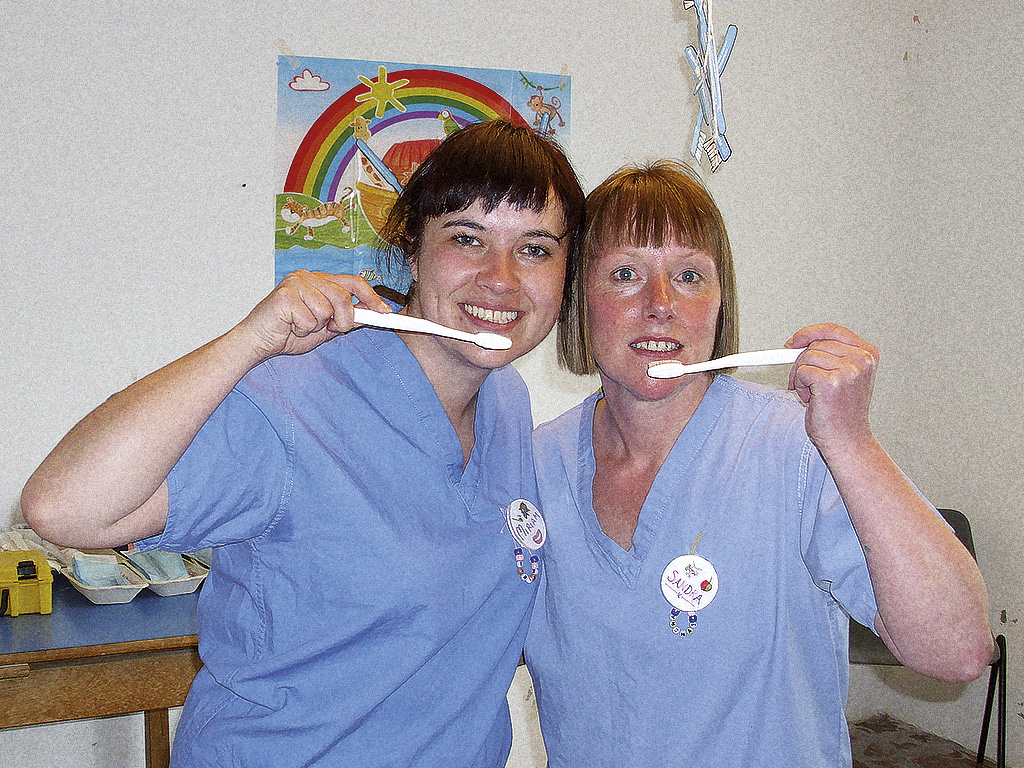
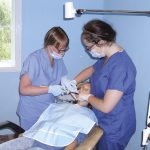
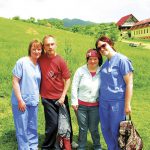
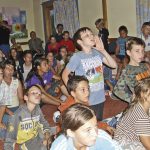
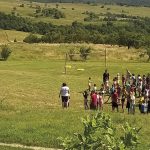
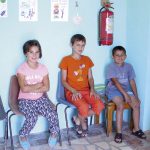
Comments are closed here.